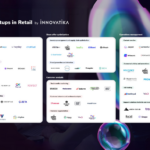
The general insurance industry, also called non-life insurance, encompasses various sectors like auto, property, health, and travel insurance. The industry has evolved significantly over the years. In a highly competitive market, insurers are increasingly focusing on providing value-added services to policyholders. These additional offerings extend beyond traditional coverage, enhancing the overall customer experience and providing tangible benefits that cater to diverse needs. In this article, we delve into the concept of value-added services in the non-life insurance industry and explore how they are reshaping the landscape of insurance.
Understanding value-added services in general insurance
Value-added services in the general insurance sector refer to the supplementary benefits that insurers offer alongside their standard policies. These services are designed to create a deeper connection with policyholders, going beyond financial protection to provide added value and support. By offering a range of personalized solutions and enhanced customer experiences, non-life insurance companies aim to foster loyalty and build long-lasting relationships with their clients.
1. Enhanced customer experience
Value-added services play a crucial role in improving the overall customer experience. For instance, in the auto insurance sector, insurers may provide 24/7 roadside assistance, making policyholders feel more secure on the road. Similarly, in the travel insurance domain, insurers may offer access to emergency helplines and concierge services, ensuring that travelers can seek assistance promptly during unforeseen events. These additional services elevate the customer experience, showcasing the insurer’s commitment to providing support and peace of mind.
Example: Allstate (USA) offers a service called “Good Hands Rescue” providing roadside assistance, including towing, tire changes, fuel delivery, and lockout services to policyholders.
2. Telematics and usage-based insurance (UBI)
Telematics technology is revolutionizing the auto insurance industry with usage-based insurance (UBI) programs. Policyholders can opt for telematics devices or smartphone apps that track their driving behavior, such as speed, braking, and mileage. Based on their driving data, safe drivers are rewarded with discounts on their auto insurance premiums. UBI not only promotes safer driving habits but also allows insurers to better assess risk and price policies more accurately, benefitting both the company and the customer.
Example: Smart Driver Club offers an app that tracks driving behavior, providing feedback to policyholders and potential discounts based on safe driving habits.
3. Preventive services for property insurance
In property insurance, insurers are leveraging preventive services to minimize potential risks. Some providers offer home security consultations, where experts assess a property’s vulnerabilities and recommend security measures to protect against theft or accidents. Additionally, insurers may offer discounted rates for homeowners who install advanced security systems or take preventive measures, thereby reducing the likelihood of claims and creating a safer environment for policyholders.
Example: Axa offers Property Loss Prevention Service including field visits to analyze fire and associated perils, machinery breakdown, theft, and natural hazards
4. Health and wellness initiatives
Health insurance companies are increasingly focusing on value-added services to encourage healthier lifestyles among their policyholders. Many insurers offer wellness programs that provide access to fitness centers, health screening services, and personalized health advice. By promoting preventive care, insurers aim to reduce healthcare costs in the long run and improve the overall well-being of their policyholders.
Example: Aetna Maternity Program (USA), expectant mothers receive personalized support and guidance throughout their pregnancy. Aetna also offers health and wellness initiatives, such as fitness discounts, nutrition programs, and health coaching services, promoting healthier lifestyles among policyholders and ultimately reducing healthcare costs.
5. Tech-driven claims processing
Value-added services also encompass tech-driven solutions to streamline the claims process. Non-life insurance companies are adopting artificial intelligence and automation to expedite claims processing and ensure a smoother experience for policyholders. Faster and more efficient claims handling improves customer satisfaction and instills confidence in the insurer’s commitment to swift resolutions.
Example: State Farm (USA) offers a mobile app that assists policyholders in documenting vehicle damage for faster and more efficient claims processing after an accident.
Enhancing customer experience in general insurance
The non-life insurance industry is witnessing a significant shift in focus from offering basic coverage to providing comprehensive and personalized value-added services. These additional offerings, such as enhanced customer experiences, telematics-driven discounts, preventive services, health and wellness initiatives, and tech-driven claims processing, showcase insurers’ dedication to meeting the evolving needs of policyholders.
As technology continues to advance, non-life insurance providers will continue to innovate, providing even more tailored and beneficial services to their customers. By going beyond financial protection and embracing value-added services, insurers are positioning themselves as valuable partners in safeguarding their clients’ well-being and assets, contributing to a stronger and more connected insurance ecosystem.







